Lexus RZ and Kia Sportage Hybrid reviews, Ioniq 5 and EV6 charging, Lucid and Polestar price hikes: The Week in Reverse
Which big automaker confirmed an 800-volt EV architecture in the works?
How much does the F-150 Lightning’s home-backup system cost?
This is our look back at the Week In Reverse—right here at Green Car Reports—for the week ending May 6, 2022.
This week we brought you a couple of first drives, broke some technical news, and served some updated impressions that might be of use if you’re cross-shopping some of the hottest new EVs. First up, we took a first drive in the 2023 Kia Sportage Hybrid, and found it to be not just the best-driving of the new Sportage lineup but better-driving than hybrid rivals from Toyota, Honda, and Ford. At a starting price of $28,545, the 43-mpg hybrid is a great value, too.
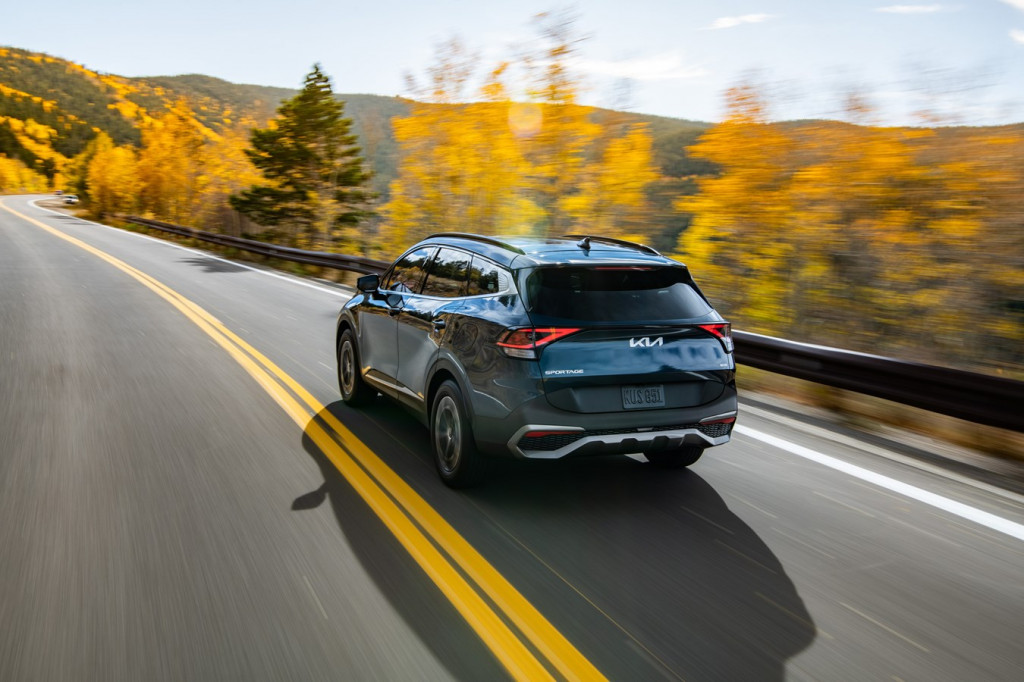
2023 Kia Sportage Hybrid
Then, in a first drive of the 2023 Lexus RZ 450e—the brand’s first mass-market EV for the U.S.—we really weren’t able to size up how it fits together as a cohesive package yet, although we found some satisfying handling and an intriguing steering yoke done better than Tesla.
While we couldn’t paint a complete picture of the RZ, we did emerge with bigger-picture news from our time with a Lexus engineering boss: Toyota and Lexus do have both 800-volt charging and an 800-volt architecture in the works—although we’ll only see it in EVs with big packs, over 100 kwh.
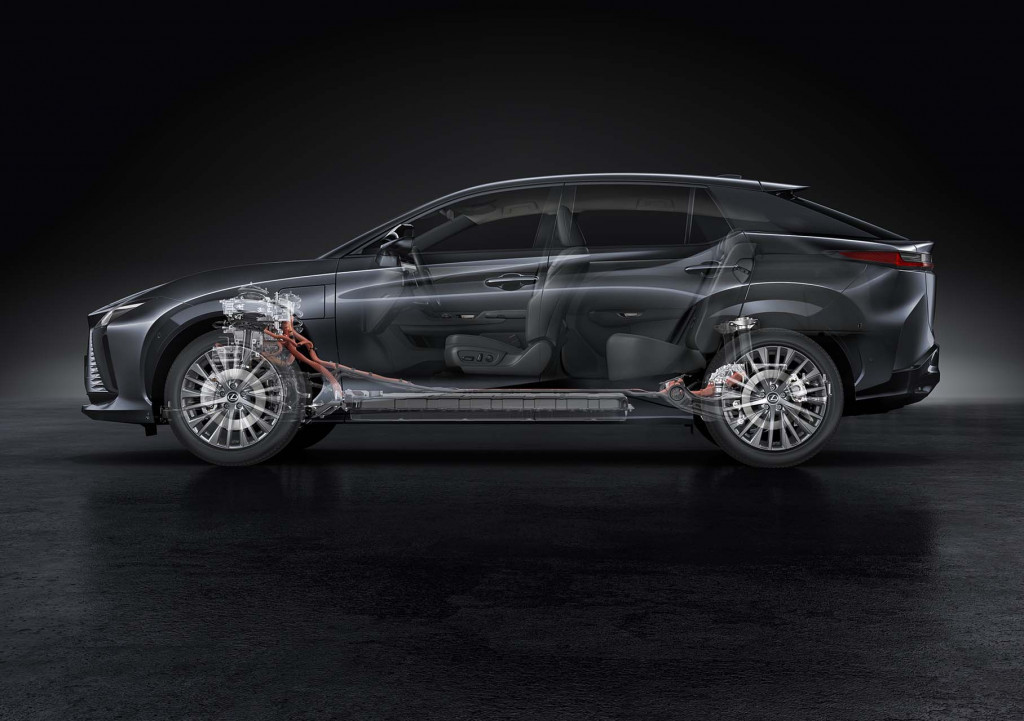
2023 Lexus RZ 450e
Should you bother seeking out the 350-kw CCS charge connectors for super-fast charging of the Hyundai Ioniq 5 or Kia EV6? After a number of charge sessions, we have to say probably not for these cars, and not now. If Hyundai and Kia add a dedicated preconditioning mode, we might change our mind.

Ford Intelligent Backup Power – F-150 Lightning
The 2022 Ford F-150 Lightning is the first EV on the market with a manufacturer-backed home power backup system, allowing Tesla Powerwall-like utility. And this past week it got a price tag—$3,895, including the inverter, disconnect switch, and battery pack. You’ll also need the 80-amp Ford Charge Station Pro (included with the Extended Range pack), and don’t forget to add about $2,000 for installation.
Tesla recently stopped including a mobile charger with its new vehicles—and so did Kia, starting with the EV6. We took a look at why.
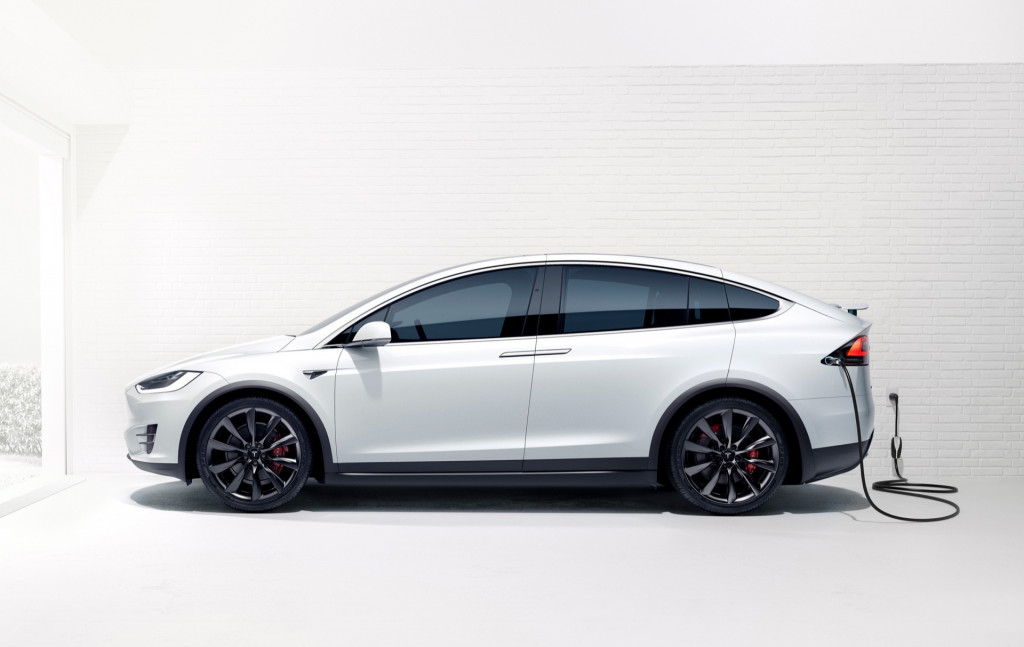
Tesla charging (Courtesy of Tesla, Inc.)
Of the most problematic group of 2017-2019 Chevy Bolt EV models recalled for their battery packs, about 45% have already received a remedy, according to recall documents filed by the federal government. Looking at more recent models, GM has only remedied a very small portion, though.
The supply chain and inflation continued to drive up EV prices especially. Lucid announced a price hike on its Air sedan lineup, ranging from $10,000 to $15,000, starting June 1. Perhaps learning from Rivian, Lucid extended the original pricing to all of its current (more than 30,000) reservation-holders plus anyone reserving before June 1.
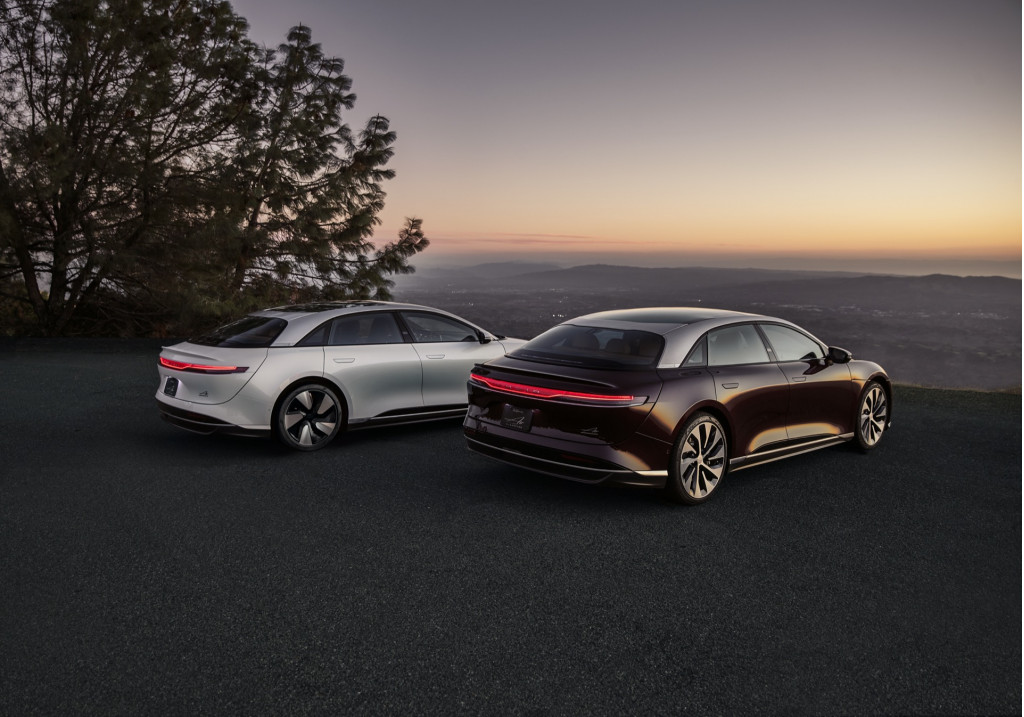
Lucid Air Grand Touring Performance
The 2023 Polestar 2 lineup also got a price hike, bringing the base single-motor version to $49,800, back above the base Model 3. Dual-motor versions get a range boost, though, and Performance Packs get more power—with the latter to be offered to existing owners over the air at extra cost.
That said, both in California and nationally, EV sales were at a record level in the first quarter of the year, with Tesla in the sales lead at more than 10% of California’s market. Within California, the market share for plug-in vehicles has essentially doubled over just the past two years.
The whole U.S. Volvo lineup is electrified for 2023—and that means a mix of mild hybrid, plug-in hybrid, and electric vehicles. A new mild-hybrid XC40 and refreshed XC40 Recharge complete the lineup, and it’s on the way to making the brand all-EV by 2030.

Teaser for Fisker Ronin electric sports car due in 2024
Fisker teased a 550-mile electric sports car with the code name Ronin—with claims it will be shown in August 2023 with production due the following year.
Stellantis, the parent company of Jeep, Chrysler, Ram, and many more brands, announced Monday that it’s planning a $2.8 billion manufacturing overhaul of its Canadian plants for EVs—as part of the electrification plan announced last year, worth $35 billion in five years. Electric Ram pickups and electric Dodge muscle cars are part of the plan, maybe even in Canada.
And although BMW and Mercedes-Benz are done with car-sharing, Stellantis stepped up to buy the remains of those automakers’ ventures this past week—to broaden its Free2Move service, which mostly offers Jeep Compass and Renegade models in the U.S.
The U.S. Department of Energy is aiming to carry out steps to boost domestic battery production—this past week in the form of $3 billion in funding for the supply chain, plus $60 million for second-life uses and $45 million for battery development.
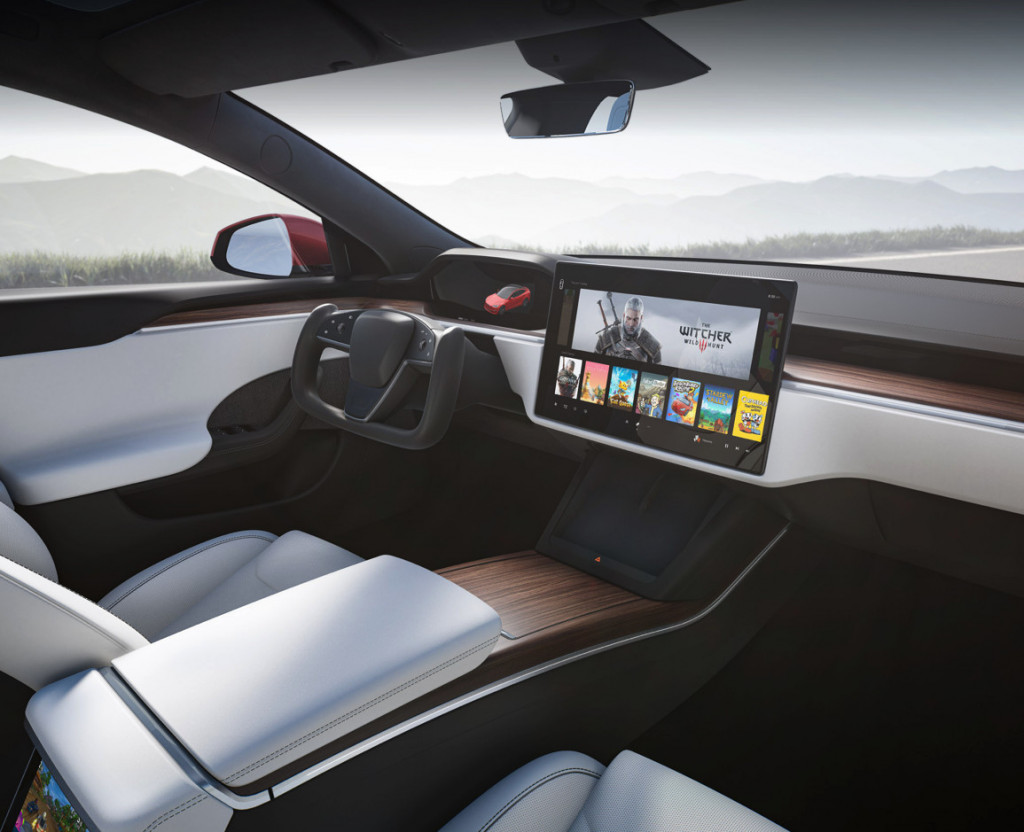
2021 Tesla Model S Plaid
Tesla has reportedly added a swiveling screen to the latest versions of the Model S. The mechanism and functionality, which haven’t been confirmed yet by the automaker, appear to be able to tilt the screen to either side when it’s helpful—for entertainment or driver focus, for instance.
Sweden-based Volta Trucks—the one with some very futuristic cargo-truck designs—announced plans Thursday to enter the U.S. market with a manufacturing partner. That will lead to U.S. production in 2024 or 2025, with a pilot fleet of 100 California trucks in the meantime.
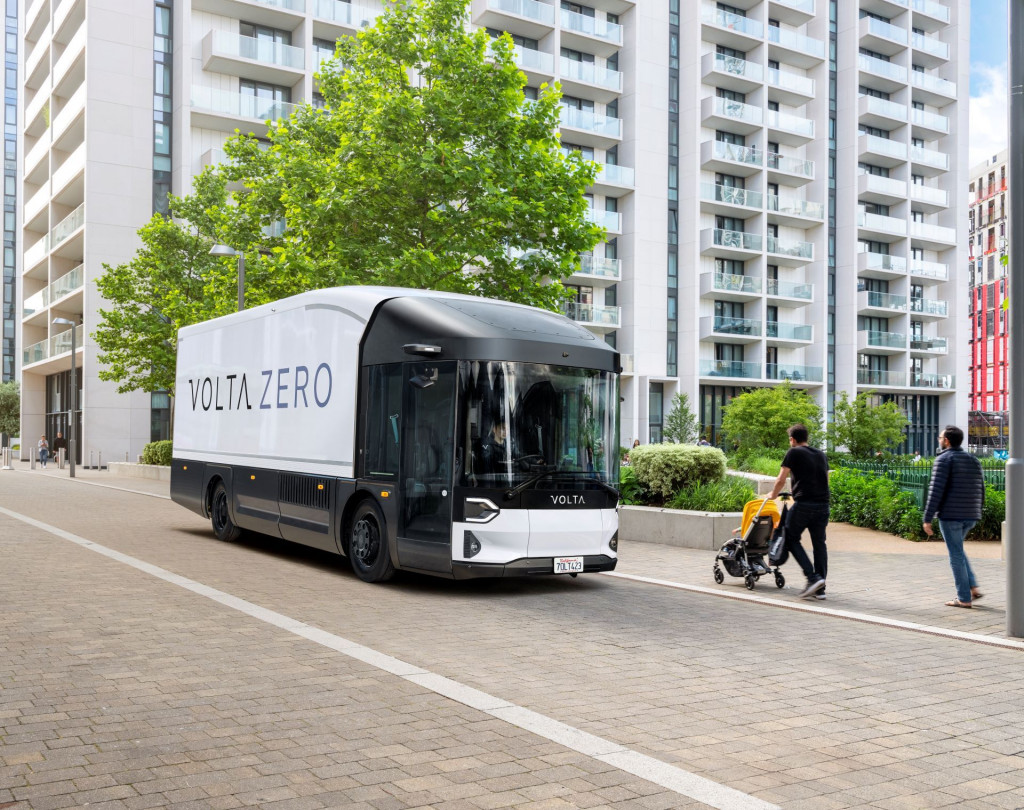
Volta Trucks California
Electrify America earlier this week revealed that it provided more than five times the number of charging sessions in 2021 than it had in 2020—with 41.4 GWh of electricity powering 145 million miles of tailpipe-emissions-free driving.
Finally, a study from J.D. Power found that, surprisingly, some of the most tech-savvy companies including Rivian and Lucid are missing core functionality like remote charge management. EV owners are increasingly using automaker smartphone apps to manage it, so they’re increasingly frustrated with the lack of such features.
_______________________________________

